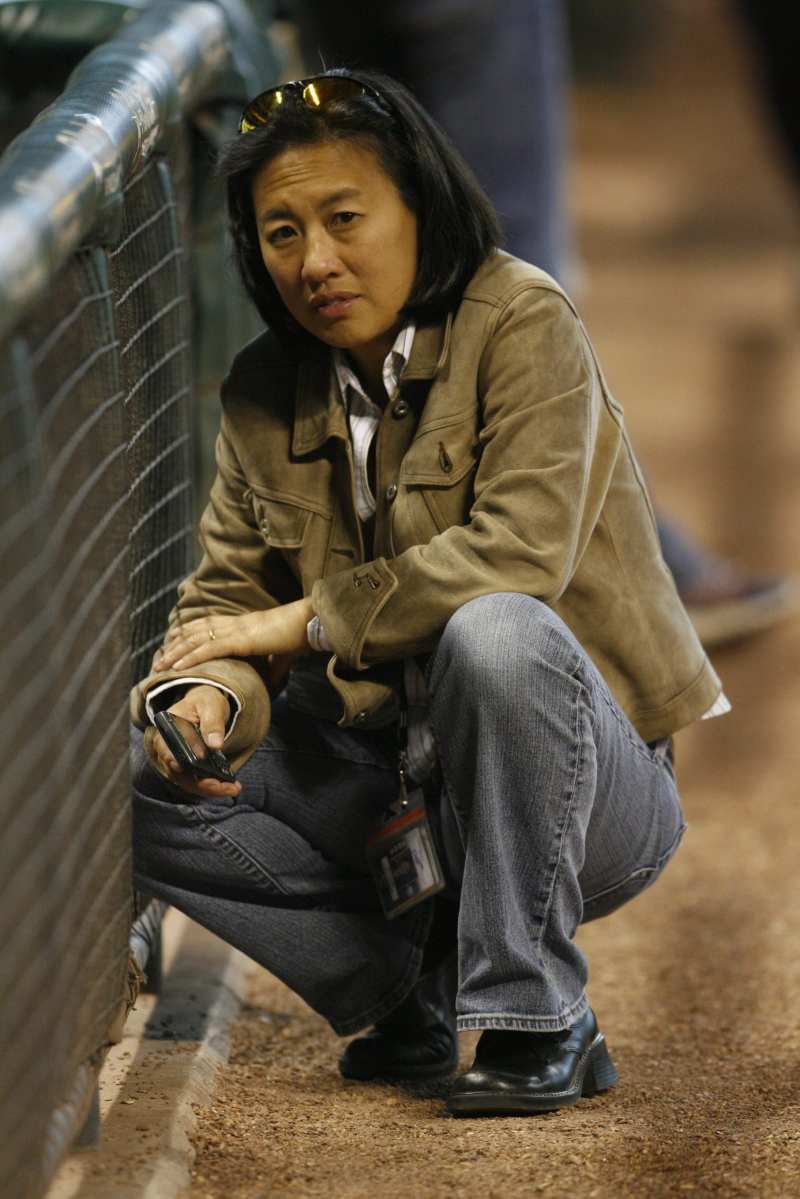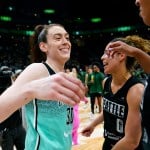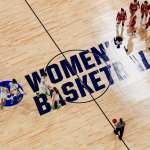We’re the only newsroom dedicated to writing about gender, politics and policy. Subscribe to our newsletter today.
The Miami Marlins announced that Kim Ng would be the team’s general manager on Friday, making Ng the highest-ranking woman and Asian American in American baseball operations.
Per the Marlins, it’s believed she’s the first woman named to a general manager position by any professional men’s sports team in the North American leagues (MLB does not technically have a rule banning women from playing, so the emphasis on “men’s sports” is unclear).
“This challenge is one I don’t take lightly,” Ng said in a statement. “When I got into this business, it seemed unlikely a woman would lead a major league team, but I am dogged in the pursuit of my goals.”
Ng started her career in Major League Baseball as an intern and rose through the ranks for more than three decades, taking a bat to glass ceilings. She spent time with the Chicago White Sox, the New York Yankees, the Los Angeles Dodgers and the MLB commissioner’s office. She has also been part of eight postseason appearances and six League Championship Series and three World Series Championship wins.
“My goal is now to bring championship baseball to Miami,” Ng said. “I am both humbled and eager to continue building the winning culture our fans expect and deserve.”
The move also means that two of the most powerful officials for the Marlins are women (Caroline O’Connor became the team’s chief operating officer last year).
In 1998, when Ng was an assistant GM with the Yankees, she told the Chicago Tribune that she was treated with “kid gloves.”
“People used to apologize for swearing in front of me — until they realized I probably swear more than them,” she said at the time.
Baseball is a male-dominated industry. This year, MLB earned a C for gender hiring, though the percentage of women hired rose about 3 percent when compared with last year, according to the annual report card issued by the Institute for Diversity and Ethics in Sports (TIDES).
Facing gender discrimination, a group of women who work full time in the field started a private group chat last year to build a community, celebrate promotions and provide support.
There does, however, appear to be progress as the MLB works to hire more women and people of color at all levels of the sport.
In 2016, the MLB hired Renée Tirado to be chief diversity and inclusion officer. Tirado, who left the post in 2019, was the league’s first female chief officer and advocated for women in the industry.
At the start of the 2020 season, there were 21 women who had on-field coaching or player development roles, a significant increase from only seven in 2018 and three in 2017, according to the TIDES report card. Alyssa Nakken of the San Francisco Giants was hired early this year as the first on-field female coach with a major league team.
Justine Siegal, the first woman to coach for an MLB team, said it was wonderful to see a woman finally make it to the highest position of a team.
“It shouldn’t have taken this long, but sometimes you just have to keep fighting longer for change to come,” Siegal said.
Siegal said that baseball is a traditional sport and has discriminated against women, but the tide seems to be changing. After being repeatedly told that girls weren’t supposed to play baseball, Siegal founded Baseball for All, a nonprofit organization that works to build gender equity in baseball.
It shouldn’t have taken this long, but sometimes you just have to keep fighting longer for change to come.
Justine Siegal, the first woman to coach for an MLB team
“I think the first challenge is that girls are not given opportunities to play baseball,” Siegal said. “The more girls who play baseball, the more girls will want to work and be qualified to take on these baseball operation jobs.”
In the MLB central office, women make up more than 40 percent of all professional staff. This is about a 10 percent increase from 2018 and the highest percentage recorded since 2007, according to the institute.
Leslie Heaphy, an associate history professor at Kent State University and the co-chair of the Women in Baseball Research Committee, said that this recent move shows current and future generations that women can be found in every position within baseball, which has lagged behind other sports when it comes to gender equity, she added.
Baseball became known as “America’s favorite pastime,” which in the 19th century implied White and male, Heaphy said.
“Baseball has a longer history than basketball and football and has been attached to that image of masculinity,” Heaphy said. “I think that long tradition symbolizes what a lot of people’s vision of America has been.”
It’s been hard for women to break that streak, but Heaphy said Ng’s rise in the industry gives her hope that MLB will continue to move forward.






